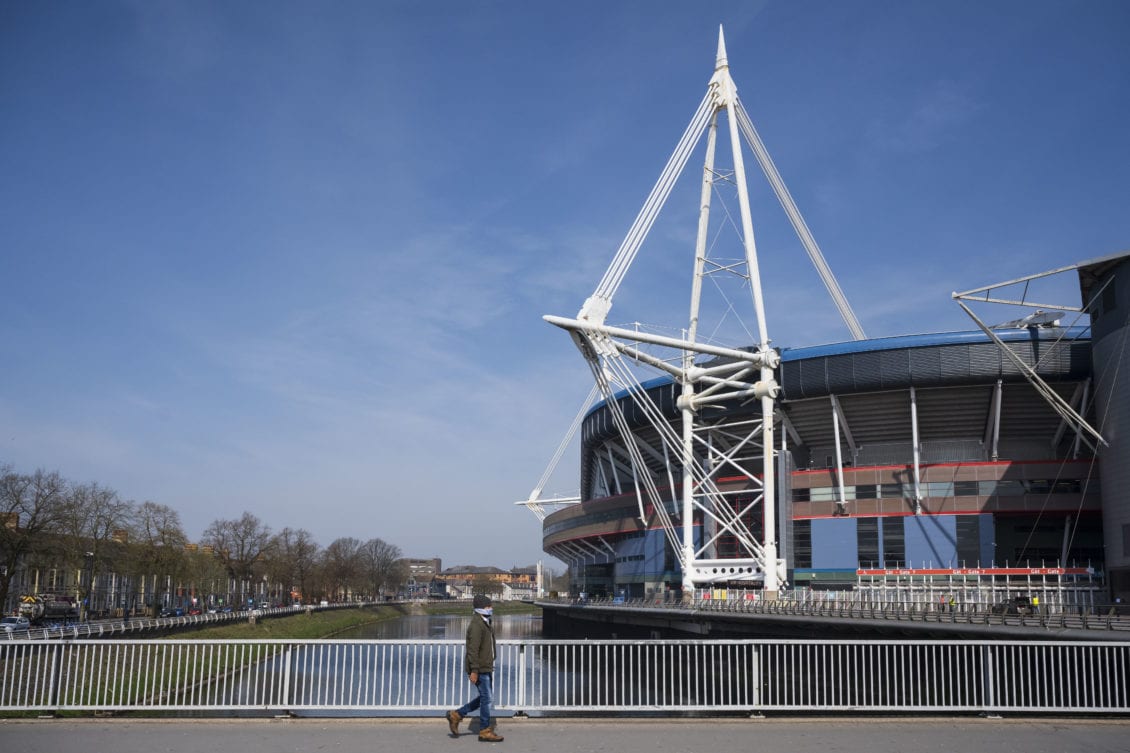Former international referee Nigel Owens has told William Hill that England and Wales need to learn from last weekend’s indiscipline, which led to sin-bins for Luke Cowan-Dickie and Josh Adam, or risk more uphill struggles in this year’s Six Nations campaign.
England were punished as they conceded a penalty try and Cowan-Dickie was shown a yellow card for a deliberate knock-on into touch in their defeat to Scotland, while Josh Adams was ordered to the sin-bin following an off-the-ball hit which left Wales with a mountain to climb in their loss to Ireland.
“These two incidents have shown why it’s so important for teams to keep their discipline in the Six Nations,” Owens told William Hill. “If you’re playing with 14 men it’s obviously going to be a disadvantage. Yes, you can hold on when you’re down to 14 men, but certainly from that point in the Wales game, it was a turning point because they had a penalty which they would have kicked to the corner as they needed more than three points on the board… All of a sudden, the momentum has gone as Ireland have a penalty and Wales are back in their own half.
“It’s a huge momentum shift, it’s not just a case of 14 men for 10 minutes. It’s a turning point in the game and a huge momentum shift. It was the same in the England game as well. England were comfortable in that game, they could have been a few more points up and they looked like the side that was going to win that game. All of a sudden, this moment of madness from Cowan-Dickie, it’s seven points on the board for Scotland and then there’s a momentum shift as well as being down to 14 men.
“As we saw over the weekend, particularly in the England game, a lack of discipline changed the outcome of the game, there’s no doubt about that, so players really need to keep their discipline this weekend. But you can understand why, it always happens. Out in the field, the pressure is on. In that moment you do something you wouldn’t have done if you weren’t under that pressure. But it provides a huge momentum shift like we saw over the weekend.”
Owens added: “It’s an ongoing process for teams when it comes to discipline. But it’s simple, the more penalties you give away in the game the less chance of winning the game you have, and if you give too many penalties away, it can build up in repeated infringements so you can get a yellow card. In so many ways discipline is important. If a team is giving away penalties in double figures in an international match, they need to look at reducing it down to below that double figure mark.”
But while Owens believes teams need to work on their discipline ahead of this weekend, he was pleased to see the referees got all the major decisions correct last weekend.
“Nobody is talking about refereeing performances over the weekend, everybody is talking about some enjoyable games of rugby,” he said. “Everyone is talking about the Scotland penalty try but the referee got the decision correct, so they’ll be quite happy with the start of the Six Nations as officials. They can always look back at things they could have done differently or where they need to be better. It might be that there’s a couple of scrums that they want to have a look at and work at to see if they can get better outcomes in the scrum.
“But this is not a refereeing fault, it only becomes the referee’s fault if he doesn’t deal with the issues, especially the clear and obvious infringements. The scrums in the Scotland-England game were pretty poor quality. I think only one competed which actually stayed up, and maybe the ball came out of another one that had actually gone down. There were a lot of resets in that game, a lot of free-kicks and a couple of penalties, so there are areas they will look to improve on going forward but I think they’ll be pleased with a nice, solid start. As a referee, that’s what you want. People talking about the games and not the referee. The key decisions that we’ve been talking about, the referees were spot on in their decisions.”
Owens went on to explain why referee Ben O’Keeffe was left with no other decision than to show Cowan-Dickie a yellow card and give a penalty try.
“You have to sin-bin Cowan-Dickie,” he said. “That was a yellow card and a sin-bin in itself, it was a professional foul. But if you give a penalty try and you can identify the individual that caused the penalty try to be given, you have to give him a yellow card in the laws of the game. If you have a maul going over or a scrum that collapses and you give a penalty try, but you can’t identify the individual, then you wouldn’t sin-bin him. But once you can identify the perpetrator of that offence then in law you have to sin-bin him. So, for me, the penalty try decision was correct and so was the yellow card decision – in two ways really, it was a professional foul and it also has to be a yellow card because of the penalty try.”
Owens added: “Up to the moment of that penalty try, I thought England were the better side. They had more of the ball, were more in control. They should have had more points on the board. I’m sure England will look at that first 60 minutes of the game and ask why are we not in total control and in the lead, rather than look at the last 10 minutes and ask if it was anybody else’s fault? No decisions that the referee made cost England that game.”








Leave a Reply
View Comments